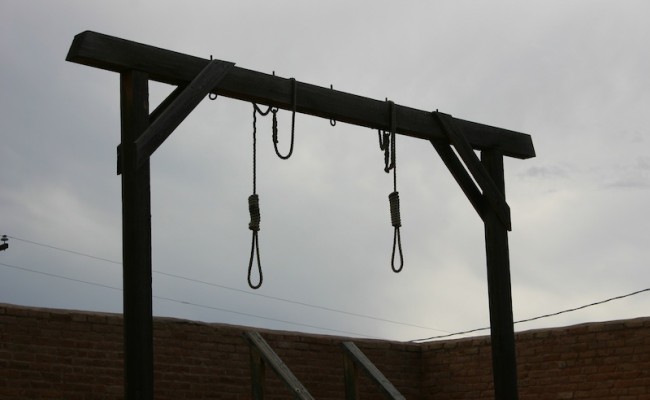In July this year a 44-year-old Bristol man named Bijan Ebrahimi was beaten, set alight and killed. Last week two 24-year-old male neighbours pleaded guilty over their roles in his death. Following this a more complete picture of the circumstances surrounding Mr Ebrahimi’s murder has begun to emerge.
According to those living in his council estate, Ebrahimi was a paedophile. He had been witnessed photographing young locals, prompting a complaint to police. When he was taken away to be interviewed, locals gathered, chanting ‘paedo, paedo’.
His interview with police revealed, however, that he was not a paedophile. Ebrahimi was a disabled Iranian migrant living in public housing, rarely leaving his residence because of his physical condition. It appears this marked him out as suspicious to locals. As Britain’s Telegraph has recently reported, these differences were understood as ‘crimes’ that carried the death penalty.
His family have since said that he was ‘a quiet, disabled man whose only joys in life came from his horticultural interests and his cat’. They also emphasised that ‘he was an excellent uncle and a warm, supportive brother’. The photographs he had taken were of children routinely damaging his prized garden and hanging pots. He took these images to provide police and the council as evidence of criminal damage.
Having been released by police late on Friday 12 July, he was dead by the early hours of Sunday 14 July. Unfounded suspicion within this housing estate culminated in his brutal murder. There is now an independent investigation underway into the role of the investigating police officers that returned him to this hostile environment, with three officers suspended.
How has it come to this? As tragic as this case is it is not unique. Paedophiles – or in this case, those rumoured to be paedophiles – are all too frequently the subject of vigilante violence. The fact that Ebrahimi was innocent makes this case particularly tragic. But our collective reaction should not be informed purely by his innocence. Nor should we be comforted by the fact that this occurred on the other side of the world.
The politicisation of the fear of crime carries with it the potential for perverse consequences. State governments across Australia have increasingly implemented more and more punitive measures to deal with convicted sex offenders, including working with children checks, sex offender registries, post-sentence preventative detention and wide-ranging monitoring regimes. Recently, Western Australia enacted provisions to enable public access to sex offender registries under certain circumstances.
On one level these initiatives may seem straightforward and unequivocal. Nonetheless, the fact that they apply almost exclusively to sex offenders and not others – murders, serial killers and so on – says something about the particular regard we invest in this form of offending. In a context in which child sex offenders are regarded as exceptional to other convicted criminals, it follows that their treatment is also often unique.
Upon release, for example, the residential location of sex offenders is often the subject of widespread rumour and innuendo. Mirroring the experience of international jurisdictions, these addresses have been publicly identified, with criminal damage against these properties not uncommon.
Alongside increasingly punitive legal measures, politicians and shock jocks regularly take aim at judges and the courts as soft on crime. The consequence is not only a diminished confidence in the judiciary but also an increasing precariousness in the separation of powers.
In this climate, it is perhaps unsurprising that the community is initiated into action. We are increasingly encouraged to be vigilant about crime but this can have a sinister potential.
The death of Bijan Ebrahimi has been described as a collective failure – one that also implicates the police who appear to have failed in their duty to protect him. But there is a broader collective failure to be witnessed. This sad episode is but one example of a larger phenomenon in which vigilance against the fear of crime translates into vigilantism.
It is not only those individuals who perform such violence that need to be condemned. We should also be wary of the politicisation of the fear of crime that helps enable a climate in which individuals feel justified to act as judge, jury and executioner.






